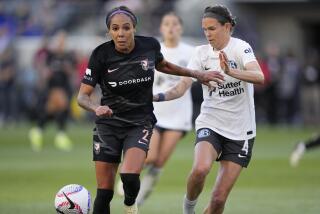Both Sides Should Have Smiles
NEW YORK — Labor Reflections, or:
Standing All Night In The Rain Waiting For Negotiators To Come Out Of The Major League Baseball Offices And Say “No Comment” Isn’t My Vision Of The Great White Way....
* The new revenue sharing and payroll tax provisions of the bargaining agreement are designed to help bring the New York Yankees back to the pack, but it figures to be business as usual for George Steinbrenner’s team.
The Yankees will have to pay between $50 and $60 million in tax and revenue sharing next year, almost double their 2002 obligation, but that’s not the $81 million bite projected in management’s initial proposal, which had the Boss thinking of suing his colleagues.
Now, a Yankee official said Saturday, “we’ll just have to go about it a little more cautiously.”
The first test will come in the off-season when Robin Ventura, Mike Stanton and Ramiro Mendoza are eligible for free agency, and Andy Pettitte and Roger Clemens can leave through contract provisions. Pettitte has an $11.5-million option, and Clemens has a $10.3-million option that has to be paid even if he doesn’t pitch for the Yankees. Both have experienced injury-marred seasons, complicating the decision for the Yankees.
“George’s life is all about bringing a winner to the fans of New York,” the club official said. “That’s not going to change.”
Besides, an expanding cable network should enhance the current revenue of $242 million.
As Ventura told New York reporters asking about the Yankees’ obligation under the new agreement: “I’m sure this might cause George not to do some things, but I’m also sure there’s a certain point where he’ll just do whatever he wants.”
* Much like the Yankees, whose ability to sign players at any cost it diligently tried to protect during the negotiations, the players’ union expects business to continue as usual.
Yes, the union made some modest concessions, but the new agreement shouldn’t hinder the salary market as much as the financial retreat by many of the previously big spenders. The general perception in baseball is that a lesson has been learned and it will be rare now that a player gets a contract of $15 million a year or more.
Still, union leader Don Fehr knows he didn’t give away a lot in the bargaining.
“That’s a subject we’re sensitive to,” Fehr said when asked if he was concerned that the new agreement delivered too big a hit on the Yankees and other heavy hitters. “This is an agreement we can live with. Otherwise, we wouldn’t have made it.”
* One of the reasons the deal got done, perhaps, is that Fehr didn’t take much more of a role at the table than Commissioner Bud Selig did.
The union leader loves to lecture on bargaining history, in baseball and otherwise, and isn’t timid about lecturing his adversaries. He’ll do it at the drop of a proposal, as he did Thursday night, nearly imploding the whole deal, a source said.
The management team was so angry, according to the source, that Selig gave his lead lawyer, Rob Manfred, permission to tell Fehr to stick it, but Manfred knew he had a larger job to do.
The source said the sides sat silently staring at each other for a nervous minute or two before resuming discussions, with union lawyers Steve Fehr, the less volatile brother, and Michael Weiner, the possible heir to the union throne, continuing to play the calming and key roles.
Said a management official: “Don sometimes thinks he’s Samuel Gompers at the start of the labor movement. He forgets that we’ve all been to school, we all know the story.”
* With all of that, officials on both sides Saturday were crediting a Friday morning meeting between Fehr and Selig for clearing the air and clearing the way for the final settlement.
“With the clock ticking,” union council Gene Orza said, “that was going to be a make-or-break meeting. If that meeting had ended poorly, it seemed to me there would have been a breakdown and each party would have done what they had to do.”
Instead, Orza said, it was only 10 minutes later that Selig and Fehr were being joined by Manfred and Bob DuPuy on the owners’ side and Weiner and Steve Fehr on the players’ side, and the final trade-offs ensued.
“It was strictly workmanlike,” Orza said. “There was no dramatic ‘OK, OK, I give up’ from either side.
“For everything either side gave up, they got something back.”
And, Orza said, it is the nature of bargaining that it went down to the wire.
Particularly, he might have added, when years of bad bargaining had created massive mistrust.
“Why wouldn’t it come down to the last minute?” he said. “Why should the clubs believe anything we say until they’re facing the threat of a strike, and why should the players believe anything they say until the players are faced with a decision of having to go on strike?”
* The format of the worldwide draft still has to be negotiated, but one of the final trade-offs involved the June selections and reflects the rising risk and cost of signing the top amateurs.
The owners gave up a provision that forced clubs signing top free agents to forfeit their top amateur draft picks as compensation.
In exchange, they obtained the right to receive additional selections if they fail to sign their first-and second-round choices.
* Several items disappeared during the bargaining, including Selig’s $100,000 discretionary fund. Well, it didn’t disappear entirely, but it was reduced to a $10,000 fund. Selig can use it for any purpose he wants, but $10,000 won’t go far.
Do you suppose that, despite the settlement and display of positive vibes, the fact that $100,000 turned into $10,000 is a lingering reflection of the union’s mistrust of the commissioner?
* So, who gets the tax proceeds?
That’s still being worked on, but Orza said the money is likely to be spent on player benefits or growing the game.
Wouldn’t it be an overdue gesture, as the march of time continues to claim the last of the 75 or so pre-1946 players, for baseball to finally fund pensions for them?
Their repeated requests to be included in one pension or another keep getting rejected by the union and baseball, but if those two antagonists can settle without a work stoppage, maybe a pension for those players is possible as well.
More to Read
Go beyond the scoreboard
Get the latest on L.A.'s teams in the daily Sports Report newsletter.
You may occasionally receive promotional content from the Los Angeles Times.










